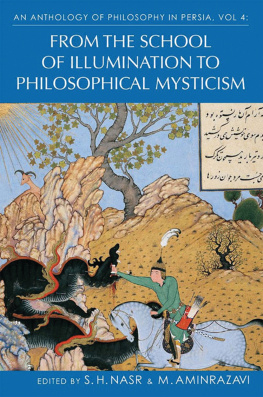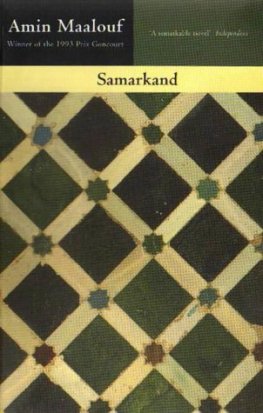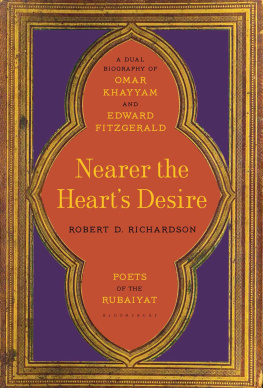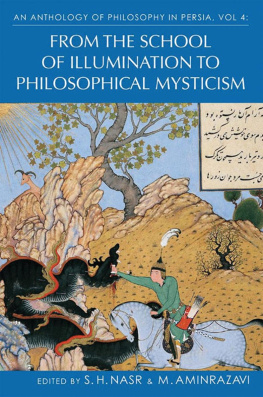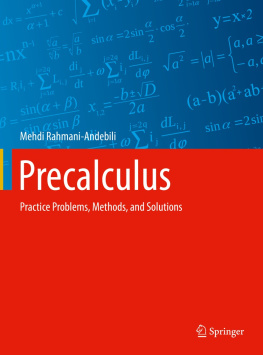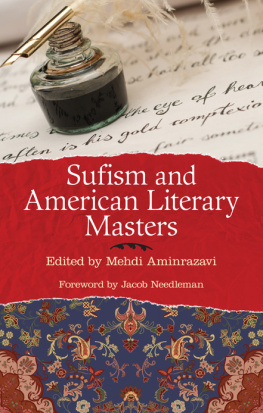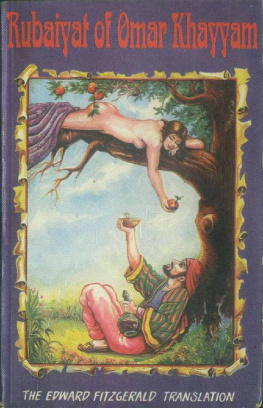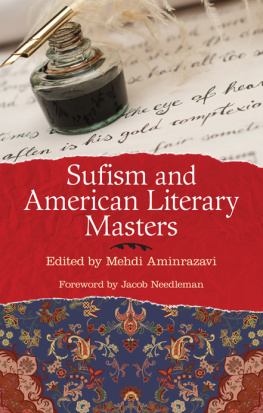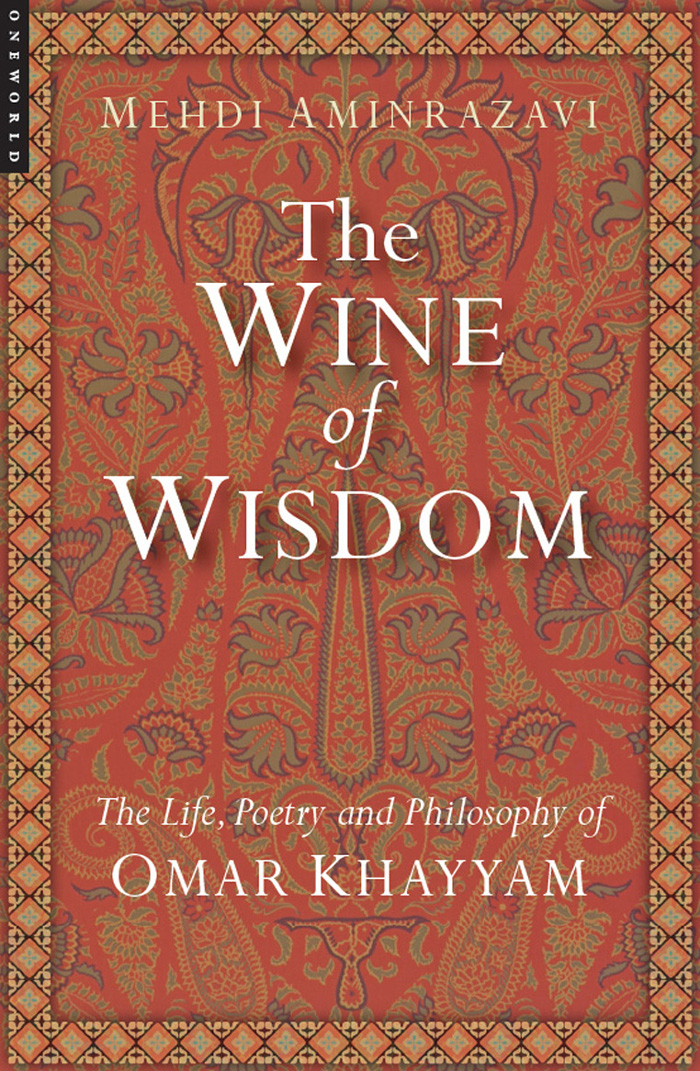The WINE of WISDOM
RELATED TITLES
Rumi: Past and Present, East and West, Franklin D. Lewis, ISBN 1851683356
The WINE of WISDOM
The Life, Poetry and Philosophy of
Omar Khayyam
MEHDI AMINRAZAVI

THE WINE OF WISDOM
Oneworld Publications
10 Bloomsbury Road
London WC1B 3SR
England
www.oneworld-publications.com
First published by Oneworld Publications, 2005
This paperback edition first published 2007
This ebook edition published in 2013
Mehdi Aminrazavi 2005, 2007
All rights reserved
Copyright under Berne Convention
A CIP record for this title is available
from the British Library
ISBN 978 1851685042
eISBN: 978 1780744742
Typeset by Jayvee, India
Cover design by Design Deluxe
Stay up to date with the latest books,
special offers, and exclusive content from
Oneworld with our monthly newsletter
Sign up on our website
www.oneworld-publications.com
I humbly dedicate this work to the democratic
movement of the people of Iran. May Khayyams spirit of
freethinking prevail in our native land.
Contents
Acknowledgements
I would like to express my gratitude to all those who assisted me with this project. In thanking them chronologically they are: Muammad Ismaili, who assisted me in finding rare articles in the libraries of Iran inaccessible to me; for their administrative support, our secretary Cindy Toomey, our skilled interlibrary loan officer Carla Baily and graphic designer June T. Padgett; and our students Gretchen Schwemer, Shahla Chohan, Lindsay Biddinger, Shannon MacMichael, Patrick Shepherd, Stephanie Van Hook and Zeke Kassock who have all been very helpful. I am grateful to Professor Seyyed Hossein Nasr for his suggestions on an early draft of this work, and Professor Suzanne Sumner of our Mathematics Department for her suggestions on Chapter Seven. I am particularly indebted to my dear colleague and friend, Professor David Cain for his most thorough reading of this book and his numerous suggestions. Much of the revisions made in the final edition are due to his diligence. I am thankful to the University of Mary Washington for a grant that enabled me to complete some of the research pertaining to Chapter Eight. Finally, my special thanks go to Dr. Majid Fakhry for his extensive suggestions regarding the translations of Khayyams philosophical treatises which led to a revised translation of them.
Mehdi Aminrazavi
University of Mary Washington
Fredericksburg, VA

Speak of happiness and wine
and seek not the riddle of the universe,
For no one has, nor will
unveil this mystery through wisdom
(fi)

The statue of Omar Khayyam beside the entrance to his tomb.
Introduction
This is a comprehensive introductory work on the life, works, philosophy, science and poetry of Omar Khayyam for the Western reader. In it I propose to reintroduce a remarkable man whose Western exotic image is not an accurate depiction of this mysterious and misunderstood philosopher, poet and scientist of the 5th/11th century. This is my attempt to reconstruct, for the first time in the English language, the personality and thought of a figure who is unparalleled in the annals of Islamic intellectual thought, a stranger both in his homeland and in the West, a figure misunderstood by many people, loved by the free spirited and hated by many among the orthodox.
There are very few non-Western figures who rivaled the fame of Omar Khayyam in the West. Just a century ago not only his poetry was taught in schools and colleges but he was regarded to be the representative of the East in all its exoticness. Omar Khayyams significance in the West is of two fold, first; his Rubaiyyat (quatrains), second; his scientific works especially those in the field of mathematics, the latter however has always been overshadowed by his poetry. His Rubaiyyat became a household name from 1870s to 1950s and discussed by the likes of Mark Twain, Ezra Pound and the public at large.
There are a number of reasons for his fame and cult like status in England and especially in America some of which I have discussed in Chapter Eight of this work. On one hand, the First World War in Europe and the Civil War in America had left deep scars on the soul of Western societies, it is not surprising therefore to see that Khayyams message concerning suffering and evil resonated deeply with the Western audience. On the other hand, materialism, secularism and spiritual humanism as is evident in the case of the New England School of Transcendentalism was on the rise. The puritanical spirit of the founding fathers was slipping away into what the Christian fundamentalists saw as the rise of a new paganism.
Omar Khayyams Rubaiyyat became a powerful symbol for the debate between puritanical Christianity and secularism I the West. For the defenders of the Christian West, Khayyam became the symbol of the Other, the pagan heretic poet who was bent on weakening the moral fabric of the society by prescribing hedonism. The moral czars argued that the West in general and America in particular is falling into the abyss of materialism and its inevitable consequence, hedonism, because of its openness to foreign ideas. Khayyams Rubaiyyat in a sense was a perfect target, he in no uncertain terms advocates drinking wine and making love amidst the uncertainty of life after death. He became the antichrist to the orthodox Christianity, the protagonist in the drama of the Christian West against the secular West.
Omar Khayyams Rubaiyyat also resonated deeply with the secularists in the West. Khayyam challenged religious doctrines, alluded to the hypocrisy of the clergy, cast doubt on almost every facet of religious rituals and advocated a type of humanism. The new West embraced Khayyam irrespective of whether these Rubaiyyat were his own but because the East contained a wisdom the West supposedly lacked. The exotic East embodied in the very being of Omar Khayyam, as represented in his Rubaiyyat advocated freethinking, rebellion against religious thought and establishment, spiritualism and living in there here and now. Khayyams timely message, praised highly by the secularists and condemned by the defenders of God was captured so eloquently in his Rubaiyyat thanks to the poetic genius of Omar Khayyam and his illustrious translator Edward FitzGerald.
Khayyam is also significant for his scientific views. He was a mathematical genius whose commentaries on geometry and algebra stimulated much interest among Western mathematicians. Khayyams scientific treatises are very brief but nevertheless ground-breaking, his works have been translated in numerous languages and taken seriously by Russian, European and lately American mathematicians. Khayyam is both an original thinker in the scientific domain and an important transmitter and interpreter of Greek mathematical writings to the Islamic world. In the case of Euclidian geometry for instance, Khayyam offered major improvements on the Euclidian postulates.


